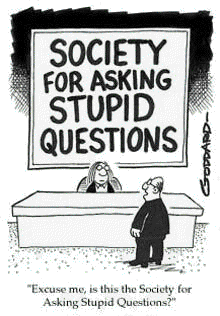
I have noticed that every planning blog has the requisite endorsements of must-read books. Those book referrals tend to fall into a few categories:
MEMOIR (ie Ogilvy on Advertising)
PSEUDO-SCIENCE (ie The Advertised Mind)
PHILOSOPHY-THEORY (ie Sex Lies and Advertising)
MANIFESTOS (ie Disruption)
But notably, there is very little recommendations for the all-important
TECHNIQUE, ie books addressing the nose-to-the-grindstone executional details of account planning like: How the hell do you write a moderator's guide? Or ABCs of writing a qualititative research proposal? Or what is the best method to shut down a chatty focus group participant? Does a focus group participant get paid even if she is late? How many pages should the topline be? Who should write the guide: planner or moderator? What are some tips to keep the party alive in the focus group?
Rest assured, all the high-minded theory and propaganda in Blue Ocean Strategy or Positioning won't answer these burning basic questions of gripping and catching on the field. This series of book reviews in the "Stupid Questions Collection" should get you to the real stuff you want answered - without wasting your dough on the misleading titles that don't satisfy.
Today's post will feature Focus Groups+Ethnography. I will point out the "best" (my opinion of course) based on 2 simple parameters of book content: Workshop Manuals (ie primers explaining language and structures) and Advanced Level Tips+Tricks (ie "insider" secrets to speed your learning). I won't waste time kicking the crappy titles that I paid too much for and traded back for pennies.
Sage Publications seems to have cornered the market in Planning and Research books with an academic textbook slant. Unfortunately, most of their books cost $HUNDRED$ because the market is so niche. NOTE TO SELF: I SMELL BUSINESS OPPORTUNITY IN PLANNING BOOKS.
HOW TO PLAN ADVERTISING by Alan Cooper and APG is prob your best well-rounded resource. It's a few years old, but takes you from the celestial mission of planners to how to write a brief and briefing the creative team. This is technically a pamphlet-plus, so while it is a quik read on the bus, it ain't thorough (and few planning books are). Likely you won't find a new copy, but some used ones seem to be around for $30.
GOOD THINKING by Wendy Gordon is a good technical glossary that answers the larger question of "what is qualitative research?" with some overviews of history and varying qualitiative techniques of the day. Best all round sampler. A bit pricey at $45, and you won't find many used links.
MODERATING FOCUS GROUPS gives you a good pocket-sized reference. Covers topics like the structure of the topline, and proposal writing. Note that it gets pricey at $55, but you can always check one from the library (that's where I got mine, shhh).
FOCUS GROUPS: PRACTICAL GUIDE FOR APPLIED RESEARCH 3RD EDITION by Richard Krueger and Mary Anne Casey. Good one, spiral bound for real use. NOTE: You will be tempted to forego the $45 price tag and click on the $3 used edition link. DON'T DO IT, SLICK. It will net you a crappy 1970's version that is sorely inadequate in comparison. Do skip the $80 hardcover version though, unless you prefer to roll top class. Note, too, this one is written VERY BASIC...depending on your experience and temperament, it may be insultingly basic. But I concede that basic can have it's place for some readers.
MODERATING TO THE MAX by Jean Bystedt is a good "secrets and tricks" manual that gathers the experience of others in the biz - and who u gonna get that from otherwise? Approx $35.
WHY WE BUY (and CALL OF THE MALL) both by Paco Underhill. Really this counts as an anecdotal memoir, but it gives a lot of details on Underhill's ethnographic techniques of putting cameras in stores and lurking in retail spaces to observe how people shop. While the book is clearly a sales tool to drum up clients, it is packed with insights that you can actually use. Maybe you can skip the second book, as it rehashes a lot of the same. Find lots of used ones for $3.
ART OF INNOVATION
by Tom Kelly of IDEO. Another sales memoir, BUT, great stuff on IDEO's "human factors" techniques for designing products and interfaces. Otherwise known as ethnography. As industrial designers, they give some unique perspective on brainstorming and exploring how consumers feel the brand not just see the brand in ads.
Harder to find are IDEO's METHOD CARDS which put their research methodologies onto flash cards for quick fresh thinking on your old research problems. Pricey at $50, but a good buy for simple, quick reference when you're tapped out of ideas.
And lastly, I really liked WINNING WITH THE P&G 99 by Charles Decker. Don't let the bad title and cover fool you. It is written by an ex-Procter&Gamble exec who details the infamous P&G ethnographic technique for gleening consumer insights and new product uses. It is very dogmatic Manifesto-styled, but good stuff if you want to know their inside "rules" on what makes a good ad or product. These 99 principles serve as research codes of conduct for all P&G staff.
If anybody has any more to add, toss it in!
Share ideas that inspire. FALLON PLANNERS (and co-conspirators) are freely invited to post trends, commentary, obscure ephemera and insightful rants regarding the experience of branding.
Wednesday, June 28, 2006
Book Review: Stupid Questions Collection
Subscribe to:
Post Comments (Atom)















2 comments:
Ethnography for Marketers is very good - they've got it at amazon.
This is a bit off the instructional route, but Understanding Comics by Scott McCloud is an amazing graphic textbook that breaks down visual communications into a comic book narrative.
Post a Comment